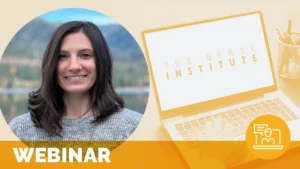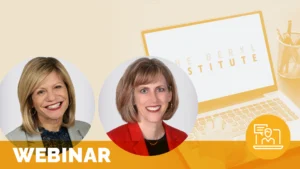Systematizing the Patient Experience: Persona a Persona

On the Road with Quirónsalud – November 2018
by Jason A. Wolf, Ph.D., CPXP
Our latest On the Road took us to the facilities of Centro Medico Teknon (Teknon Medical Center) in Barcelona, part of the Quirónsalud healthcare system. I also had the honor to be in Barcelona for the I Seminario Internacional de Experiencia del Paciente (First International Seminar on Patient Experience). What I had the chance to experience and learn on this journey was a reinforcing idea I have seen in my travels globally over the recent year. That is, the essence of our work on impacting patient experience and elevating a commitment to the human experience in healthcare returns us to the human at the heart of this work, as human beings caring for human beings. This is a central focus for the team at Quirónsalud as well as it is core to their very brand itself – la salud persona a persona – health person to person.
This effort is personified in the extensive effort underway in the system to transform how experience is managed, measured and improved. While my visit took me to one of many locations in the organization, the essence of the strategy was clear and present in the efforts I saw and the people I experienced. It is all clearly grounded in a systemic plan for success.
A Systemic Plan for Patient Experience Measurement and Success
My guide for the journey was Nuria Díaz Avendaño, Director of Corporate Quality. Nuria helped frame the journey Quirónsalud has undertaken. This effort is driven by a clear and unwavering focus of the leadership of the organization and grounded in the idea that patient experience is and requires a systemic effort with real implications. It is considered both central to and grounded in the culture of the organization. As shared in their strategy, “Positive patient experience is the backbone of Quirónsalud’s growth at the same level as economic results.”
This core ideas that underline the effort at Quirónsalud are essential to their success and help focus both intent and action. They include critical considerations such as:
- Experience reflects events that occur throughout the care process.
- Experience goes beyond satisfaction.
- Experience is about individualized care and the adaptation of services to meet patient and family needs.
- Experience is intrinsically linked to the expectations of patients beyond just clinical results or health status.
- In all that is done, we provide more than a service, we provide an experience.
It is here, in these broad, bold strokes that we see the consistency a focus on experience excellence takes on regardless of where you might stand on the globe. From commitment and culture to broadening understanding of what experience is and encompasses, this storyline now plays out again and again in organizations worldwide looking to successfully improve their efforts.
In the case of Quirónsalud, they shared the intentional effort to understand, measure, act and improve a and reinforced the reality that meeting the expectations of today’s patients requires changes in how healthcare organizations work. The Quirónsalud effort offers a simple, yet powerful model grounded in the premise of what patient’s want – timely, accessible services provided with respect and an awareness of needs – and what they expect – quality, safe, innovative and affordable care. They believe that their commitment to experience is the filter through which they can deliver on this promise.
To tackle the opportunity they saw, the team at Quirónsalud established an improvement system grounded in simple, but informative measures, strong analysis and thoughtful implementation of ideas. The effort to measure the perception of patients was built on the use of Net Promoter Score (NPS) on which people rate you on a scale of 0 to 10, those scoring 0-6 being detractors, those scoring 7-8 being passive participants and those scoring 9-10 serving as promoters of your organization. This score is directly in line with the overall rating score used by many U.S. based organizations who use the Consumer Assessment of Healthcare Providers and Systems (CAHPS) surveys.
The results of this one score are supplemented by a series of options survey respondents can mark as serving as a promoter or detractor to their experience. Unlike processes in other countries, the team at Quirónsalud sends this survey out via email 48 hours after someone leaves their care encounter. As the effort at Quirónsalud got underway they worked to collect a broad set of data points to understand their opportunities for improvement and in their initial analysis learned some interesting things. For instance, in the example of people visiting the Emergency Department (which we will explore further later):
Individuals who choose to return to the hospital for other services have an average NPS of 52% (those scoring 9-10) compared to those who don’t come back at 42%.
There is a statistically significant relationship (p <0.05) between the NPS of a new patient in the hospital, attended for the first time in the emergency room, and the decision to return to the hospital or not. That is, the better the score, the more likely a return visit. And perhaps while not surprising there is now data to back it up.
From this analysis of data and the organizational opportunities revealed, the team at Quirónsalud established five strategic areas for their patient experience strategy (Figure 1). They include strategic direction, patients, infrastructure, processes and people centered around alliances/relationships and communication. The significance of this model is one I see reach throughout healthcare globally today – that experience is not just about satisfaction or service, but rather a true focus on experience is grounded in an integrated perspective of all the elements that can and will influence and impact the experience an organization provides.
In walking the halls of Teknon, with General Manager Jose Luis and Nuria, you could sense these broader strategic efforts in place. With a focus on the fundamentals of care there were also strategic efforts to grow responsibly and clinically, providing top level personal interactions, effective use of space and broad engagement. An example of this is seen in the new Heart Institute being opened at Teknon which considered the key aspects of experience in conjunction with the financial realities of the new center. Key to Jose Luis was a focus on partnership and people, a commitment to quality and place, and an alignment to key indicators driven by their accreditation from Joint Commission International as well as the NPS scores they were constantly evaluating.
This was all grounded on an awareness of what experience truly encompassed for all involved and a shift in mindset about how healthcare can and should be run. As he stated, “We are changing our thinking to a participatory process with our patients and our people.” This idea of participation was further underlined by the plan Quirónsalud has put in place to execute on these experience strategies. One of the first places they tackled this work was in Urgencia, the Emergency Department.
Patient Experience Plan in Action: Improving the Emergency Department & the Urgencia at Clinica Teknon
Beyond the strategic framework the team at Quirónsalud established, Nuria shared the critical action steps they put in place to address experience improvement. They first tackled this issue on their emergency department (ED) and shared a great case of improvement that took place right at Teknon itself.
The key elements Nuria share included seven central ideas and actions to help move their efforts forward. They included:
- Care and Caring program. This was an extensive and structured training program through which the elements and critical components of caring beyond clinical care were elevated. Not only did this program elevate a conversation on the interpersonal skills needed, but some of the core processes and procedures from dress code to privacy, managing complains to resolving conflicts. This program was rolled out across all of Quirónsalud’s hospitals.
- Señas de identidad. This effort supported the creation and reinforcement of core behavioral expectations that all team members would need to know and exemplify in all their actions across the system.
- Creation of a Standards Guide. The standards guide established consistency in how people operated in communication and actions and this standard was designed to ensure a consistent experience in people and process across the system.
- Establishing a Space Design Manual. In addition, to create a similar look and feel across the Quirónsalud system, space design guides and considerations were elevated and disseminated as facilities have updated or come on line.
- Process digitalization. The elevation of technology as an integral key to a positive experience was also central to their effort, such as access to records and information via patient portals and other means to engage effectively and efficiently with the system.
- Continuous monitorization. In staying connected to the people they serve, Quirónsalud is striving to support and monitor health not only from its own physical space, but in any space those they serve happen to be.
- The use of design thinking. Underlining this all is the idea of design thinking to engage all the voices impacted by how the system operates and appears. Back to Jose Luis’ comment above, by supporting a participatory process, improvements are more relevant, focused and able to drive desired outcomes.
This plan and these elements were essential to the improvement efforts across Quirónsalud, and central to the effort at the Teknon, led in part by the Medical Coordinator in the Teknon ED, Jordi Casabon. As Jordi shared, the ED at Teknon had poor experience scores and issues with volume and the capacity to move people effectively through the care process. They took on a multimodal analysis to understand their issues. What this raised for them was concerns with space, technology, and perhaps most significantly a lack of pride in what they did. This is not to say people were not committed to their work, but there was an identified opportunity to strengthen how people connected this commitment with the pride that could come with it.
For their analysis they identified opportunities to tackle big chunks of work including the admissions process and the means by which they engaged people in the care delivery process. They were able to redesign intake processes to include fast track opportunities, they redesigned use of space, reformed the triage process and more. While I will not dig too deep into this case study (I am hoping we can get Jordi and Nuria to share this story in an upcoming webinar with the Institute as it is more powerful coming from their perspective), I will say what they showed was that in taking the time to understand data and a commitment to an experience lens they were able to drive a significant turnaround. The experience scores for the ED have dramatically increased and the environment of care significantly improved. Key to Jordi was the capacity to involve people in the planning for and implementation of ideas. The concern of pride has shifted to one where people now feel the service is theirs. As Jordi offered, “They now know, ‘it depends on you!’”
What the team at Quirónsalud exemplified in their efforts is that experience is not just a soft edge of healthcare, but a hard and practical science at its heart. It is not something that is a nice to do, but a fundamental strategic must do with both benefits to the organization and impact on those served. When taking a thoughtful, considerate and comprehensive approach as Quirónsalud did, great things can and will happen.
Leading the Conversation Beyond Ourselves
Not only has Quirónsalud taken the steps to address their own efforts, but they also decided to help elevate the conversation across Spain as well. In hosting the I Seminario Internacional de Experiencia del Paciente (First International Seminar on Patient Experience) in Spain, they worked to bring together experts from both inside and outside of healthcare to talk about the power of experience in impacting and improving care. The program (https://www.quironsalud.es/es/seminario-experiencia) was powerful blending of voices of practice and perspective, all kicked off with that of a patient sharing his own experience with the system.
While I will not recap the entire program, I will offer that we need more gatherings of this sort where committed leaders and lived experience can come together to elevate the experience conversation. As Hector Ciria, CEO of Quirónsalud offered in his opening, “We must focus on the humanity in healthcare. That is the essence of patient experience!”. That is truly the essence of all we heard from and learned in our time together at the seminar and during my visit On the Road with Quirónsalud. It is all that has been reinforced by research at The Beryl Institute into consumer perspectives on experience and beyond. People want to be treated as people with respect, effective communication and I dare say love. That idea was central to the patient, Fernando Lopez who welcomed us to the seminar with a powerful reflection of his own experience. He offered, “They took the time to listen, they took the time to care, I was treated with love!”.
This idea that we acknowledge all people in the process is not just a nice idea, but as my visit to Quirónsalud shows, it can and must be wired into the kind of healthcare organizations we can and should aspire to be. This is not a series of specific national efforts driven by policy (though we have to acknowledge it may be influenced by it), but rather a global movement driven by an elevated conversation on the human experience in healthcare supported by intention and grounded in rigor. That is the opportunity we have and the one seized on as Quirónsalud continues their journey to experience improvement. This shift in how we do work may be no better exemplified in the simple statement from Jose Luis at Teknon who offered the transformation he was seeing himself. He offered, “We are shifting our focus on how we do things from ‘giving you what I think you need’, to understanding ‘what it is that you need’. This listening for understanding, acting with purpose and focus on outcomes can and will lead to great things. The team at Quirónsalud, while sharing they still are early in their journey, have already travelled very far.
Thanks to the entire team at Quirónsalud for their invitation to visit and to participate in this historic gathering in Spain. It was wonderful to see our members and communities together to learn and share and as always honored to learn from and growth with you all.
Related content
-
 Culture & Leadership | Staff & Provider Engagement
Culture & Leadership | Staff & Provider EngagementNonviolent Communication to Improve the Human Experience
Discover the transformative power of Nonviolent Communication (NVC) in this engaging webinar. Grounded in emotional intelligence, NVC equips healthcare professionals with tools to resolve disputes and prevent conflict escalation through clear, compassionate communication. Participants will explore NVC’s four-step framework, which focuses on identifying feelings, understanding needs, and connecting with values that shape actions and motivations.
Learn more -
 Culture & Leadership | Patient Family & Community Engagement | Staff & Provider Engagement
Culture & Leadership | Patient Family & Community Engagement | Staff & Provider EngagementA System-Wide Transformation in Human Experience at NSW Health
Join Anne Marie Hadley, Chief eXperience Officer at NSW Health, for an inspiring conversation. Four years ago, we set out on a bold journey with consumers, carers, families, staff and volunteers to co-create Elevating the Human Experience, a unifying vision that placed kindness, dignity, and compassion at the heart of healthcare across NSW Health. Now,
Learn more -
 Culture & Leadership | Staff & Provider Engagement
Culture & Leadership | Staff & Provider EngagementEnterprise Volunteer Management: From Silo to Systemness
The ever-changing healthcare environment has required hospitals across the country to rethink how they deliver care and support services. Inova Health System in Northern Virginia has been on a transformational journey to embed a culture of collaboration across the organization. Volunteer Services is one of the areas that has shifted from a silo-based to an
Learn more
